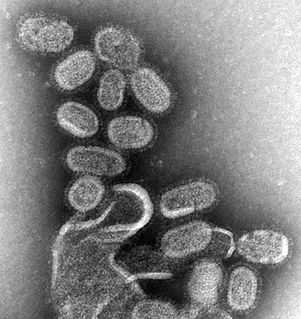
The 1918 United Kingdom general election was called immediately after the Armistice with Germany which ended the First World War, and was held on Saturday 14 December 1918. The governing coalition, under Prime Minister David Lloyd George, sent letters of endorsement to candidates who supported the coalition government. These were nicknamed "Coalition Coupons", and led to the election being known as the "coupon election". The result was a massive landslide in favour of the coalition, comprising primarily the Conservatives and Coalition Liberals, with massive losses for Liberals who were not endorsed. Nearly all the Liberal M.P.s without coupons were defeated, although party leader H.H. Asquith managed to return to Parliament in a by-election.
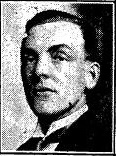
Sir James Henderson-Stewart, 1st Baronet, born James Henderson Stewart, was a British banker, Army officer and politician. He was a National Liberal Member of Parliament (MP) for East Fife from 1933 until his death, and was the sessional chairman of the Parliamentary Party in 1945. He played an important role in negotiating the unity of the National Liberals with the Conservatives, but was unable to persuade the Liberal Party to join as well.
John Murray was a Scottish civil servant, university administrator and Liberal Party politician.
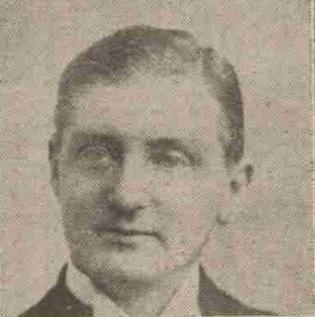
John Thomas Tudor Rees was a Welsh lawyer, judge and Liberal politician.
The Coalition Coupon was a letter sent to parliamentary candidates at the United Kingdom general election, 1918, endorsing them as official representatives of the Coalition Government. The 1918 election took place in the heady atmosphere of victory in the First World War and the desire for revenge against Germany and its allies. Receiving the coupon was interpreted by the electorate as a sign of patriotism that helped candidates gain election, while those who did not receive it had a more difficult time as they were sometimes seen as anti-war or pacifist. The letters were all dated 20 November 1918 and were signed by prime minister David Lloyd George for the Coalition Liberals and Bonar Law, the leader of the Conservative Party. As a result, the 1918 general election has become known as 'the coupon election'.

Sir William Ryland Dent Adkins was an English barrister, judge and Liberal politician.
The Cardiganshire by-election, 1932 was a parliamentary by-election held on 22 September 1932 for the British House of Commons constituency of Cardiganshire.

John McDonald Henderson was a Scottish chartered accountant, barrister and Liberal Member of Parliament.
Lieutenant-Colonel Sir Vivian Leonard Henderson MC was a British army officer and Conservative Party politician who was elected to the House of Commons three times, for three different constituencies.
The St Albans by-election of 1919 was a parliamentary by-election held in England in December 1919 for the House of Commons constituency of St Albans in Hertfordshire.
The National Liberal Party, was a liberal political party in the United Kingdom from 1922 to 1923. It was created as a formal party organisation for those Liberals, led by Prime Minister David Lloyd George, who supported the Coalition Government (1918-22) and subsequently a revival of the Coalition, after it ceased holding office. It was a formal breakaway from the Liberal Party. It was wound up in 1923 when Lloyd George agreed a merger with the Liberal Party.
The Manchester Rusholme by-election, 1919 was a parliamentary by-election held in October 1919 for the British House of Commons constituency of Manchester Rusholme. The by-election was important for shaping the future Labour Party attitude to electoral relations with the Liberal Party.
The Forest of Dean by-election was a Parliamentary by-election. It returned one Member of Parliament to the House of Commons of the Parliament of the United Kingdom, elected by the first past the post voting system.
The Flint Boroughs by-election was a Parliamentary by-election. It returned one Member of Parliament to the House of Commons of the United Kingdom, elected by the first past the post voting system.

Edward Smallwood was an English coal merchant and Liberal Party politician.
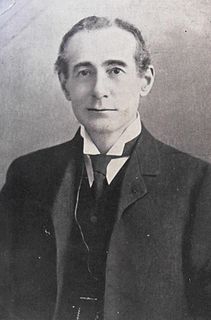
The Crewe by-election was a Parliamentary by-election. It returned one Member of Parliament to the House of Commons of the United Kingdom, elected by the first past the post voting system.
The Aberdeen South by-election, 1917 was a parliamentary by-election for the House of Commons constituency of Aberdeen South comprising the local government wards in the southern part of the city of Aberdeen. The by-election took place on 3 April 1917.
The Howdenshire by-election, 1926 was a parliamentary by-election for the British House of Commons constituency of Howdenshire in Yorkshire on 25 November 1926.
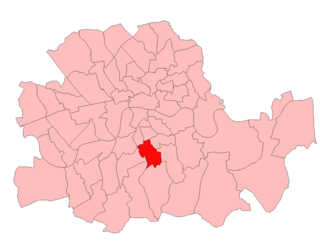
The Camberwell North West by-election, 1920 was a parliamentary by-election held for the British House of Commons constituency of Camberwell North West in the South London district of Camberwell on 31 March 1920.

